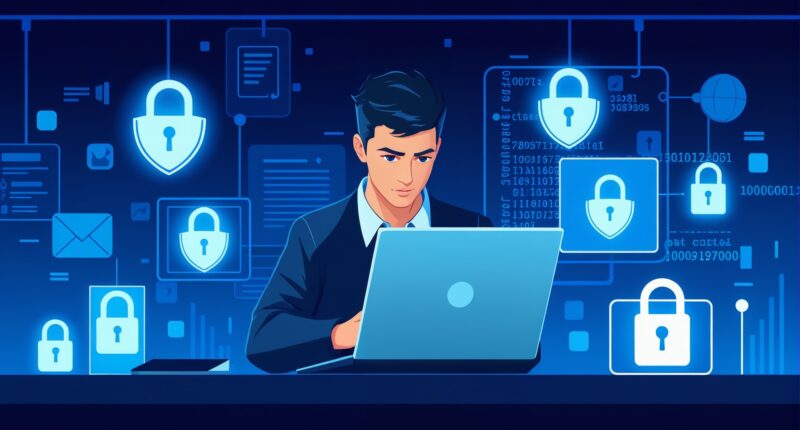Cybersecurity is one of the fastest-growing fields in the world today. With technology evolving rapidly, the demand for professionals who can protect digital systems from threats and attacks is higher than ever. If you’re interested in a rewarding career that combines problem-solving, technology, and continuous learning, cybersecurity could be the perfect path for you. Here’s a detailed guide on how to start a career in cybersecurity — even with no prior experience.
What Is Cybersecurity?
Cybersecurity is the practice of protecting computer systems, networks, and data from digital attacks. These attacks are usually aimed at accessing, changing, or destroying sensitive information. Cybersecurity professionals play a critical role in maintaining the security and privacy of individuals, companies, and governments.
Why Choose a Career in Cybersecurity?
- High demand for cybersecurity experts worldwide.
- Attractive salaries and growth opportunities.
- Dynamic and constantly evolving work environment.
- Opportunities to protect organizations and make a real impact.
According to industry reports, cybersecurity job openings are projected to grow significantly over the next decade, making it a future-proof career choice.
Step 1: Understand the Basics of Cybersecurity
Start by learning fundamental concepts like network security, encryption, malware analysis, and ethical hacking. Free resources and beginner-friendly courses on platforms such as Coursera, Udemy, or Cybrary are great places to start. Understanding these basics will help you build a solid foundation for more advanced learning later on.
Recommended Beginner Topics:
- How the internet and networks work
- Common cyber threats (malware, phishing, ransomware)
- Basic Linux and Windows security
- Introduction to firewalls and antivirus software
Step 2: Gain Practical Skills
Cybersecurity is a hands-on career. Create a virtual lab environment on your computer to practice. You can simulate attacks and defenses safely using open-source tools like Wireshark, Metasploit, and VirtualBox. This helps you gain real-world experience and understand how hackers operate.
Step 3: Earn Cybersecurity Certifications
Certifications validate your knowledge and make you stand out to employers. Some popular entry-level cybersecurity certifications include:
- CompTIA Security+ – ideal for beginners.
- Certified Ethical Hacker (CEH) – focuses on penetration testing.
- CISSP (Certified Information Systems Security Professional) – advanced-level certification.
- Google Cybersecurity Certificate – great for foundational learning.
Step 4: Build Experience Through Internships or Projects
Employers value experience. If you’re new, start small — volunteer to secure a small business’s website, contribute to open-source security projects, or take part in Capture the Flag (CTF) competitions. These experiences not only build your resume but also show initiative and skill.
Step 5: Network with Cybersecurity Professionals
Join cybersecurity communities on platforms like LinkedIn, Reddit, or local tech meetups. Networking helps you stay informed about job openings, industry trends, and learning resources. Mentorship from experienced professionals can also accelerate your career growth.
Step 6: Apply for Entry-Level Cybersecurity Jobs
Once you have the basic knowledge and certifications, apply for entry-level positions such as:
- Security Analyst
- Incident Responder
- Network Administrator
- IT Support Specialist (with a focus on security)
Continue to learn and grow as you progress — cybersecurity is a lifelong learning journey.
Conclusion: Your Path to a Cybersecurity Career
Starting a career in cybersecurity takes time, practice, and continuous learning. Focus on mastering the basics, gaining hands-on experience, and earning industry-recognized certifications. As you grow your skills and professional network, you’ll find many opportunities to advance and specialize in areas like ethical hacking, cloud security, or digital forensics. The key is consistency and curiosity — the more you explore, the stronger your cybersecurity career will become.









